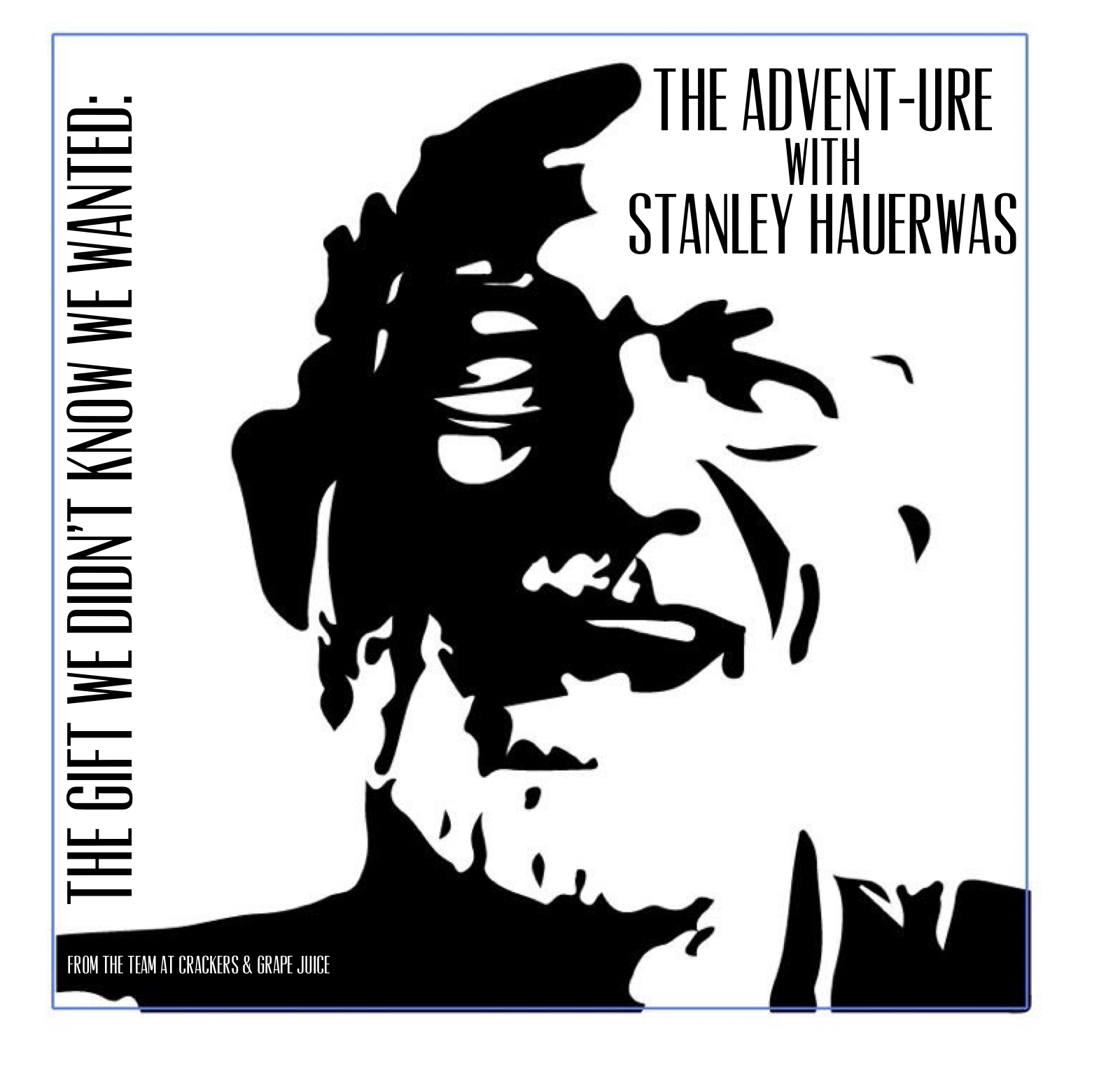

Since her “Let it be with me according to your word” makes Mary not only the mother of Jesus but Christ’s first disciple, I often wonder if Mary was among the riff-raff gathered to hear her boy’s sermon on the mount. Clearly, she had to have been present for some of his teaching and preaching, for the Gospels are unabashed in acknowledging that Mary harbored at least a nagging suspicion that maybe her boy was crazy. But I wonder, in particular, if Mary was there among the multitude for his sermon on the mount because it sounds so much like her own song:
“My soul proclaims the greatness of the Lord…
He has shown the strength of his arm,
he has scattered the proud in their conceit.
He has cast down the mighty from their thrones,
and has lifted up the humble.
He has filled the hungry with good things,
and the rich he has sent away empty.”
Her son puts her poetry into prose:
“Blessed are you who are poor, yours is the Kingdom of God. And blessed are you who hunger now for your bellies will be filled…but woe to you who are rich for you have already received your comfort and woe to you who are well-fed now for you will go hungry.”
If anyone in the congregation that day had pushed back on his preaching, Jesus could’ve simply replied, “My mom taught it to me.”
Every line of her song is laden with the scripture Mary would’ve learned as a girl. But— notice— Mary takes all the future-tense ‘wills’ of her Bible and puts them in the past-tense. She takes all those old promises from her scripture and sings of them as though they were as good as done. She takes the hopes of her people and sings of them as having already been accomplished, “He has shown strength with his arm…”
It’s a dangerous song that she attributes to her son— demonstrated by the day she watches her boy outrage the chief priests and elders for the last time. Standing with torn clothes and a bloody face, he tells Pilate that he’s actually the One with power and wisdom and authority. In a seemingly grotesque inversion of Mary’s song, proud Pilate, backed by mighty Rome, fills this “king” with sour wine and sends him away, emptied, nailed to his throne.
Resurrection reveals his humiliation to have been his exaltation, John’s Gospel tells us. Easter turns the mockery above his crown of thorns (“This is the King of the Jews”) into the meaning and mystery of creation.
The cross does not invalidate Mary’s song.
The cross— that is, the way and witness that led to the cross— instantiates Mary’s song.
A new world began in the belly of Mary.
It’s a way in the world not even the Powers of Sin and Death can extinguish.
And that a new world arrives in Mary’s belly means we cannot talk about justice anymore in a manner that is not determined by the name of Jesus.
To say that the word justice must now be determined by the name Jesus is to suggest that those who worship Jesus must live in a manner that makes no sense if this crucified King called Christ has not been raised from the dead; which is to say, those who worship Jesus should live in the same manner as his mother.
At Advent, seldom do we observe how it’s not just that Mary sings her song in the past-tense, acting as if the promised justice of God had already arrived. Easter onwards, Mary lives as though that justice had been accomplished in her son.
No one knew better that a new world began in Mary’s belly than Mary.
After all, as St. Luke reports, it’s Mary who leads Christ’s remnant in Jerusalem as they awaited the coming of the Holy Spirit her boy had promised, and, after Pentecost, it’s Mary who comprises the peculiar community who now share all their possessions with another, living as though Mammon had been brought down and sent packing.
It’s odd.
Nearly all the songs we sing to anticipate the incarnation speak of Mary’s boy as a king, not of the Jews only but of all the Earth, and not back then once upon a time but here and now and who will come again. Yet, unlike Mary, you would never guess from the witness of most Christians’ lives that Christians take seriously what we most frequently call him at his first coming.
Indeed the lives of most Christians today would seem to imply we think Mary’s song gets it wrong.
Jesus was an inspiring teacher, we say. Maybe Jesus was a powerful example that can draw love and compassion out of us. Perhaps Jesus was the transaction paid for us so that God can be with us beyond the veil.
But a king?
Kings don’t care about your belief.
Kings want to rule.
And kings want subjects whose lives will reflect their reign.
You need only to look at the literature produced by the so-called New Atheist movement to see the extent to which Christians have lived in a way that implies Mary’s song is wrong. The New Atheist movement has sought primarily to undermine Christian conviction by marshalling arguments from science. But if Mary is right in her singing about her son, if justice is now determined by the name Jesus, then the greatest challenge to Christian conviction could never come from science. Rather, the greatest challenge to Christian faith claims would be the absence of a people who embody an alternative way in the world, a way that makes no sense at all if Jesus is not Lord.
As Stanley Hauerwas writes in his essay Church Matters,
“I confess I often enjoy making liberals, particularly American liberals, uncomfortable by acknowledging that I am, of course, a theocrat. “Jesus is Lord” is not my personal opinion— I take it to be a determinative claim about the world’s deepest reality. So, I’m ready to rule. The difficult, however, is that a crucified Lord entails a politics that cannot resort to coercion and violence; therefore, Christianity is a rhetoric of persuasion all the way down. Fortunately, we believe that by redeeming time Christ has given us all the time in the world to learn how to live under him as our Lord.”
Mary only needed the fifty days between Easter and Pentecost. But by redeeming time, Jesus has given the rest of us all the time in the world to apprentice under people like his mother.
Stanley Hauerwas often admits that, on his own, he’s “a violent son of a bitch” whose inclinations are at odds with the way of the one who incarnated in Mary’s belly. Just as often, Hauerwas tells others that, as a follower of Jesus the King, he’s committed to nonviolence. It’s the same reasoning for why I wear my clergy collar so often. Hauerwas advertises his convictions about nonviolence in order to create expectations in others, expectations that might help him to live more nearly to what he claims to be true.
Like Hauerwas, most of us do not naturally trust that the peaceable, suffering way of Jesus Christ not only can bring down the proud and the powerful from their thrones but, by his throne on Golgotha, it already has defeated them, once for all.
Advent, then, is the time when Christians bring out the song of Mary and the poetry of the prophets, and, with purple pageantry, we put them on display in the hopes that the public gesture might help us to live more truthfully to the one who turns the crosses we build in to ploughs.
